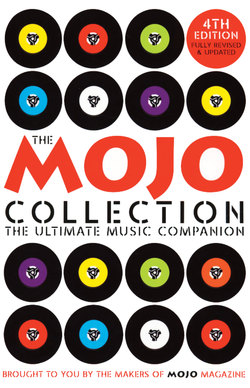Читать книгу The Mojo Collection - Various Mojo Magazine - Страница 100
На сайте Литреса книга снята с продажи.
Frank Sinatra Francis Albert Sinatra and Antonio Carlos Jobim The Voice Of The Century’s last consistently great vocal performance.
ОглавлениеRecord label: Reprise
Produced: Sonny Burke
Recorded: Hollywood, California; January 30–February 1, 1967
Released: October 1967
Chart peaks: 28 (UK) 19 (US)
Personnel: Frank Sinatra (v); Antonio Carlos Jobim (g, v); Claus Ogerman (ar, conductor); orchestra including Dick Noel (tb); Dom Um Romao (d)
Track listing: The Girl From Ipanema; Dindi; Change Partners; Quiet Nights Of Quiet Stars; Meditation; If You Never Come To Me; How Insensitive; I Concentrate On You; Baubles Bangles And Beads; Once I Loved
Running time: 27.47
Current CD: Warner Brothers WB469482
Further listening: Sinatra And Company (1969)
Further reading: Sinatra! The Song Is You: A Singer’s Art (Will Friedwald, 1995)
Download: Not currently legally available
Sinatra came relatively late to the bossa boom. The bewitching melodies of Brazilian composer Antonio Carlos Jobim and sensual slow-motion samba rhythms of bossa nova had been common adult pop currency since Stan Getz, Joao and Astrud Gilberto had popularised them in 1962–63, but Sinatra had been trying different approaches to find a commercial foothold in ‘Beatleland’, as he had it. There was the country rock of half of Sinatra 65 and the Ray Charles-ish blues pop of the single That’s Life that followed the commercial jackpot of Strangers In The Night. All this kept the blue-eyed one on the radio but the albums were lousy, either unsatisfying mishmashes (Sinatra 65, That’s Life) or openly contemptuous of the material (Strangers In The Night). But by immersing himself in bossa nova and programming seven of Jobim’s elegant compositions along with three standards done Jobim-style (the closest he got to recording a songbook album, he didn’t consider that the English lyrics were sufficiently good at the time to make it an all-Jobim set), Sinatra fashioned one of his most majestic recorded achievements.
With by far the gentlest singing of his career, Sinatra’s tender-strong voice is a wonder, respectfully piping through the Brazilian’s graceful, economic tunes, as if to acknowledge the greatness of this new generation of standards. Sinatra said ‘I haven’t sang this soft since I had laryngitis’– it’s the polar opposite approach of his bluesy snarling on That’s Life.
Like a more minimalist version of Jobim’s Verve recordings – arranger Claus Ogerman and Jobim’s ‘personal drummer’ Dom Um Romao were key figures of those sessions – Sinatra kept urging Ogerman to remove elements of the arrangement until the air played its part. A magical ingredient was Jobim himself, picking at his gut guitar and murmuring a Portuguese counterpoint on four of the tracks, less a duet partner than a wise composerly appendage. Jobim described Sinatra as ‘Mount Everest for a songwriter’ while Frank rated ‘Tone’ (as he called him) ‘one of the most talented musicians I have ever met’; the album they made together outdid the praise they had for each other and is probably the last essential Sinatra record. An attempt to follow it up two years later was compromised by palpably lower-grade performances and flip side rock-ballad programming.
